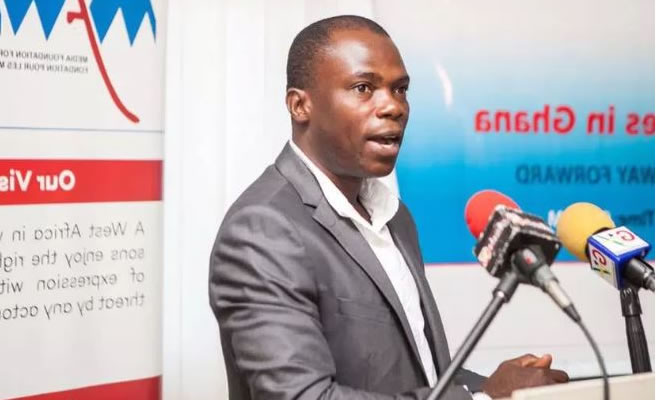Help de-escalate growing tension – MFWA urges media
The Media Foundation for West Africa (MFWA), has asked the media to de-escalate the rising tension in the country following the December 7 general elections.
According to the media watchdog, some inflammatory content carried by the media has the tendency of plunging the country into chaos.
At least five people died in election violence in Ghana, police said last Wednesday.
The Police Service said there had been more than 60 incidents since Monday morning when Ghanaians went to the polls.
“Twenty-one of the incidents are true cases of electoral violence, six of which involve gunshots resulting in the death of five,” it said.
After tightly contested polls, the opposition NDC has rejected the presidential results and has challenged some of the parliamentary.
The party’s presidential candidate, John Mahama has refused to recognise the declared winner and incumbent Nana Akufo-Addo, citing fraud.
Parliament has been split 137 NPP wins to 136 for the NDC with one seat falling for an independent candidate.
The close race has set the stage for fiery rhetoric in the media. An NDC journalist has been arrested for insulting and threatening the president with death.
The MFWA said there is a cause to worry about media content since the polls.
“Such contents have included calls for confrontations, incitement to violence, blatant unsubstantiated allegations, and other acts that do not bode well for the peace of the country.” the executive director, Sulemana Braimah said in a statement.
The MFWA has, therefore, cautioned media practitioners to be wary of what they publish on their platforms.
Read the full statement below:
The Media Foundation for West Africa (MFWA), has observed pieces of inflammatory and inciting content related to the ongoing agitations about the 2020 elections results, that are being published or broadcast by mainstream media.
Such contents have included calls for confrontations, incitement to violence, blatant unsubstantiated allegations, and other acts that do not bode well for the peace of the country.
So far, the Ghanaian media have played a crucial role in the 2020 electioneering process despite the isolated cases of unprofessional conduct by a few media organizations. Ghanaians have relied on the media for information and education about the electoral process, voting process, collation, and declaration of results.
Following the disagreements on the results declared by the Electoral Commission, it is important for all stakeholders, especially the media, to recognize and play the critical roles they must play to maintain the peace of the country. This must be done while recognizing the liberties of individuals and groups to use legitimate means to seek redress to concerns and for asserting their rights under the laws of Ghana.
As the main source of information for the people, the media’s role in these critical times of tension is crucial than ever before. Media organizations and journalists need to recognize that their actions and inactions have the greatest potential of contributing to either the peace or instability of the country in these trying times.
Through their actions, the media can either help calm or amplify the tension in the country. We urge the media to act in ways that will ensure the calming of tensions rather than an escalation.
While not encouraging any acts of censorship or self-censorship, we remind the media of their public interest responsibility and the need for them to live up to that responsibility. We further wish to remind the Ghanaian media fraternity of how unprofessional, partisan actions of media organizations and journalists have resulted in violence and ruined peace in some countries.
We, therefore, call on media organizations and journalists in Ghana to help deescalate the growing tension by being very circumspect in what they choose to publish or broadcast and what they allow others to use their platforms to publish or broadcast. This, the media can do by avoiding the use of and disallowing others from using hate speech, stereotypical comments, inflammatory and provocative remarks, inciting and other indecent expressions, and pro-violence language on their networks or in their publications.


